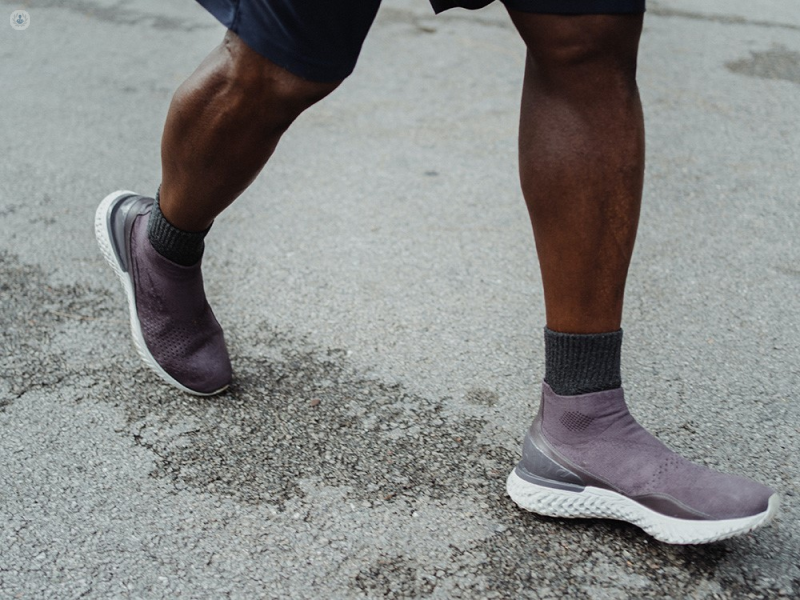How do you treat a leg ulcer and is surgery needed?
Written by:Having a leg ulcer can be painful and debilitating. If left to get worse, it can have a profound effect on both your physical and psychological wellbeing.

So, how are leg ulcers treated and is surgery always necessary? In this article, Mr Akin Oluwole, a top consultant vascular and endovascular surgeon based in Nottingham, walks us through the causes, treatments options and the steps to help your ulcer heal quicker.
What is a leg ulcer and what causes it?
A leg ulcer is a break in the skin below the knees that has not healed after two weeks. There are many different causes of leg ulcers with the most common being venous disease (a disease in the veins in your legs).
Other causes of leg ulcers include:
• arterial disease (disease of the arteries in your legs)
• diabetes
• some medications such as corticosteroids
What are the symptoms of a leg ulcer?
Ulcers caused by venous disease are usually painful. You may also notice leg or ankle swelling around the ulcer and darkening/hardening of the skin. The skin may become itchy, and because of the swelling of the legs, you may feel a heaviness or aching associated with it.
Ulcers caused by arterial disease can also be painful, with the pain getting worse at night. The surrounding skin may also be pale in colour and cool to touch, and there may also be hair loss around the leg.
Is surgery always necessary?
No, surgery is not always necessary to treat ulcers. There are conservative treatment options that can be tried first, including compression therapy for venous ulcers and special dressings for arterial ulcers.
How is a leg ulcer surgically treated?
For venous ulcers, the principle of treatment is to eliminate the venous hypertension. Treatment options for this include:
• Foam sclerotherapy: This involves injecting a medication called fibrovein into the diseased veins.
• Radiofrequency ablation and avulsion
• Laser ablation
• High tie and avulsions
For arterial ulcers, the aim is to improve the blood supply to the legs by using one of the following treatment options:
• Angioplasty
• Surgical bypass
What can patients do to help their leg ulcer heal faster?
Doing the following things may help your leg ulcer heal faster:
• Taking regular walks to improve blood flow to the legs
• Keeping legs elevated on a stool when sitting
• Stopping smoking and moderating alcohol consumption
• Eating a healthy diet
• Regularly exercising
If you think you have a leg ulcer and would like to see a specialist, visit Mr Akin Oluwole's Top Doctors profile and book an appointment with him.


